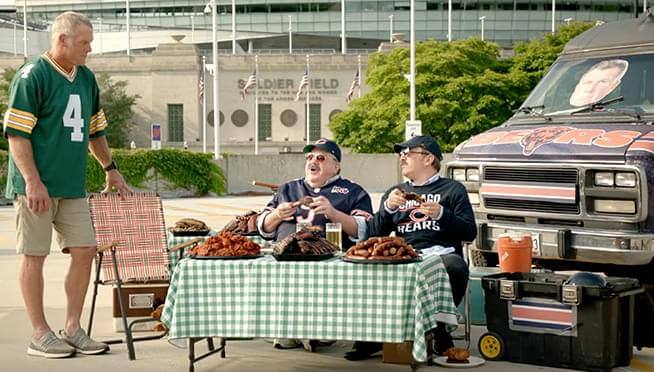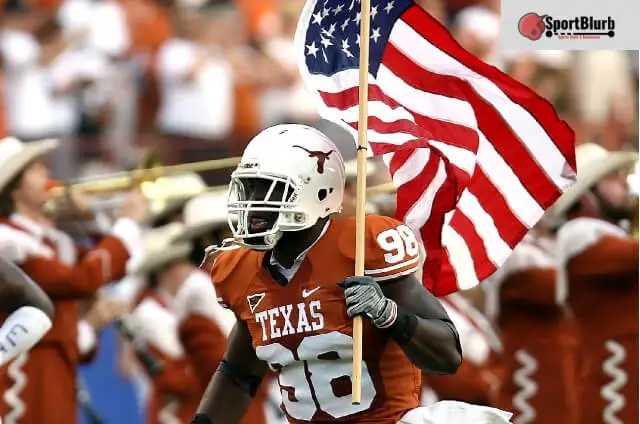Last Updated on October 31, 2023 by Alex PT
The NFL Hall of Fame does not pay its inductees a salary or provide them with any direct financial compensation. However, there are many indirect financial benefits to being a Hall of Famer, such as increased endorsement opportunities, appearance fees, and opportunities to profit from memorabilia and autographs.
Do NFL Hall Of Famers Get Paid

NFL Hall of Famers do not receive a salary from the NFL or the Pro Football Hall of Fame. However, there are many indirect financial benefits to being a Hall of Famer.
One of the biggest benefits is increased endorsement opportunities. Hall of Famers are often seen as more marketable than other retired players, and they can command higher fees for endorsements. For example, Hall of Famer Peyton Manning has endorsement deals with companies such as Nationwide, Gatorade, and Papa John’s.
Hall of Famers also often receive appearance fees. They may be invited to speak at corporate events, charity events, or other gatherings. For example, Hall of Famer Jerry Rice has spoken at events for companies such as Coca-Cola and FedEx.
Hall of Famers can also profit from memorabilia and autographs. Their jerseys, helmets, and other memorabilia are often in high demand among collectors. Hall of Famers can also charge high fees for autographs. For example, Hall of Famer Joe Montana reportedly charges $250 for an autograph.
In addition to the financial benefits, being a Hall of Famer is also a huge honor. It is the highest recognition that can be bestowed on an NFL player. Hall of Famers are enshrined in the Pro Football Hall of Fame in Canton, Ohio, and they are forever remembered as some of the greatest players in NFL history.
Some Hall of Famers have also used their elevated status to support charitable causes. For example, Hall of Famer Troy Aikman has a foundation that helps children with disabilities. Hall of Famers may receive financial support from organizations or sponsors who align with their philanthropic efforts.
Overall, while NFL Hall of Famers do not receive a salary, they can still benefit financially from their status as Hall of Famers. They have increased endorsement opportunities, they can receive appearance fees, and they can profit from memorabilia and autographs.
What Benefits Do NFL Hall of Famers Receive?
NFL Hall of Famers receive several benefits and honors in recognition of their contributions to the sport:
- Enshrinement: The most significant benefit is induction into the Pro Football Hall of Fame, an honor recognizing their excellence in the sport.
- Gold Jacket: Hall of Famers receive the iconic gold jacket, symbolizing their elite status.
- Bronze Bust: Each inductee has a bronze bust created in their likeness, displayed in the Hall of Fame.
- Ring of Excellence: Hall of Famers are presented with a special Hall of Fame ring, an enduring symbol of their accomplishments.
- Ceremonial Events: They are invited to participate in various Hall of Fame ceremonies, such as the enshrinement weekend, the Hall of Fame game, and the annual Gold Jacket Dinner.
- Travel and Accommodations: The Hall of Fame covers travel expenses and accommodations for many of these events.
- Educational Programs: They have access to educational programs and resources to help with financial planning, health, and post-football career transitions.
- Networking Opportunities: Hall of Famers have exclusive access to a network of NFL legends and other influential individuals, which can open doors for various opportunities.
- Public Speaking Engagements: Many Hall of Famers are in demand as public speakers and can earn fees for sharing their experiences and insights.
- Autograph Signings: They can profit from autograph signings and memorabilia sales, capitalizing on their legendary status.
- Community Involvement: Hall of Famers often engage in charitable and community activities, leveraging their fame to make a positive impact.
- Legacy: Their legacy is secured, and they serve as role models and inspirations for aspiring athletes and fans.
Can an NFL Hall of Fame player be kicked out?
The integrity of the selection process for the Pro Football Hall of Fame is uncompromising. The governing body has explicit rules for evaluating potential inductees, focusing primarily on their accomplishments during their playing or coaching careers. Furthermore, the actions of an inductee after his induction do not alter the Hall’s conditions around honoring his on-field performance during his NFL career. The Hall of Fame’s mission is to simply honor, preserve, educate, and promote the history of professional football.
No Existing Precedent for Expulsion
To date, there have been no instances of NFL Hall of Fame players being expelled from the institution, regardless of their actions post-induction. They are honoured for their contributions to the sport, vis-a-vis their performance on field, not for their character or actions outside of football.
Examples of Controversial Hall of Famers
Celebrated NFL players like O.J. Simpson and Lawrence Taylor, both Hall of Famers, have had significantly controversial lives outside of football. Despite their criminal convictions, the Hall of Fame has not stricken their names from its prestigious registry. These instances further indicate that behavior or actions outside the realm of professional football hold no weight in influencing a player’s standing in the Hall of Fame.
Critique: A Double-Edged Sword
This policy has its critics and defenders both. Critics argue that personal conduct off the field should be a crucial factor in determining the eligibility of a player. They opine that Hall of Famers, representing the sport, should be role models with impeccable character. On the other hand, defenders insist on the separation between personal life and professional accomplishments, underlining that the Hall of Fame honors sportsmanship, skill, and merit, not the personal lives of the honorees.
So, the NFL Hall of Fame’s current lodestar is on-field performance and accomplishments. Off-field behavior, however controversial, does not presently impact a player’s status in the Hall of Fame, providing no precedent for expulsion. However, the ongoing debates around this issue suggest a possibility of evolving perspectives and alteration in policies in the future. But as of the current scenario, an NFL Hall of Fame player cannot be kicked out.
Requirements To Become An NFL Hall of Famer
Becoming an NFL Hall of Famer is a prestigious honor, and it involves several key requirements:
- Outstanding Playing Career: Players must have demonstrated excellence during their NFL careers. This typically involves achieving remarkable statistics, records, or performance over an extended period.
- Retirement: Players become eligible for Hall of Fame consideration five years after their retirement from the NFL. This waiting period allows for a comprehensive evaluation of their career.
- Selection Committee: The Hall of Fame’s selection committee, composed of sports journalists and football experts, reviews and votes on eligible candidates.
- Nomination: Players must first be nominated by a Hall of Fame selection committee member. This can be done during the nomination process, where a list of eligible candidates is established.
- Finalists: From the nominated candidates, finalists are selected to be considered for induction. Typically, around 15 finalists are chosen each year.
- Election: To be inducted, a finalist must receive at least 80% of the vote from the selection committee during the annual election meeting.
- Contributors and Coaches: The Hall of Fame also includes contributors (non-players who made significant contributions to the game) and coaches. Their eligibility and selection process are similar but may involve different committees.
- Character and Integrity: The Hall of Fame’s bylaws state that candidates must have demonstrated good character and integrity both on and off the field.
- Impact on the Game: Players should have made a significant and positive impact on the game, leaving a lasting legacy. This can involve records, awards, championships, and contributions to the sport’s growth.
- Positional Diversity: The Hall of Fame aims to maintain positional diversity, ensuring that players from different positions (e.g., quarterbacks, defensive linemen, wide receivers, etc.) are represented.
- Influence and Legacy: The candidate’s influence and legacy within the NFL and the broader football community are considered, as they should have contributed positively to the sport.
- Team Affiliation: Players do not represent specific teams but are enshrined in the Hall of Fame as individuals. Their team affiliations are mentioned, but induction is based on their individual contributions.
https://www.nflworld.org/do-nfl-hall-of-famers-get-paid/
https://www.sportscasting.com/benefits-nfl-hall-of-famers-receive/

Hi! I’m Alex PT. I hold a Bachelor’s degree in Sports Management from Indiana University and have over seven years of valuable experience working in a Sports Event Management Company. I founded SportBlurb with the passion for bringing you the latest, most insightful, and engaging content in the world of sports. So, whether you’re a die-hard fan or want to stay informed, I’ve got you covered!

